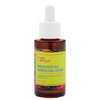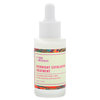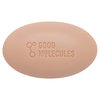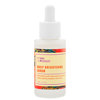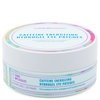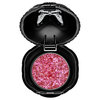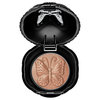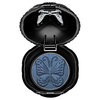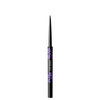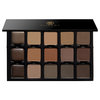Moisture 101
Published Jan 4, 2012

Central heating, cold harsh winds, and hotter showers all contribute to drier skin in the winter time. We're often told to use extra, thicker moisturizer, but which lotion, cream, or oil do you choose? With so many brands and different types, it can often be difficult to know what's best for your skin. We spoke with Washington, DC-based dermatologist Elizabeth Tanzi, M.D. and Don’t Go to the Cosmetics Counter Without Me author Paula Begoun to find out when you should be increasing your moisturizer dose, and what product you should be using.
Different skin types have different needs, so when do you know to switch to a thicker moisturizer? "Pay attention to your skin," says Paula. "If it starts to feel dry, tight, or itchy, then you need to start using a moisturizer or switch to a thicker formula.” Thickness means the product is more emollient and will prevent moisture loss by sealing in water and natural oils inside your skin. Another sign that shows your skin is parched? "If your skin feels dry within an hour of using your regular moisturizer, then it's time to use something that’s more emollient," says Dr. Tanzi.
The next step is deciding which lotion, cream, or oil is best for you. Lotions tend be thinner and are often scented, creams are much thicker (and can be called body butters), and oils are more like the natural composition of your skin, so are more easily absorbed into your skin. "The drier the skin, the thicker the moisturizer should be," says Dr. Tanzi. "People with dry skin should use cream moisturizers while people with oilier, combination skin should use a lotion. If you have oily skin that's acne prone, use a non-comedogenic lotion as it won't clog your pores." It's also important to make sure that your daytime face cream (or lotion) contains SPF. As for oil? "Both dry and oily skin types can use an oil as it's quite light, but it's best to apply it during the night as soon as you get out of the shower," says Paula. Nighttime is when your skin is able to heal itself, and applying oil within three minutes of getting out of the shower (and while your skin is damp) makes it easier for your skin to absorb the moisture. Always feel like a greaseball when you use body oils? You’re probably applying too much. If your skin hasn’t absorbed the oil within five minutes of applying it, then cut back on the amount you’re using.
You can also keep your skin hydrated by using a humidifier in your house. "Using a humidifier will help put moisture back into the air," says Paula. "You should also avoid long, hot showers, scrubbing dry skin with loofahs or body brushes, and make sure your diet is full of foods rich with healthy fats—such as avocados, fish, and eggs."
You Might Also Like
-

Body Moisturizers
The Most Nourishing Moisturizers for Hydrated, Never-Greasy, Skin
-
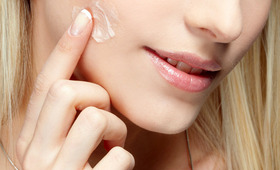
Moisturizer
Three Oil-Free Moisturizers You Need to Try
- 380
-

Skincare
Which Vitamins Should You Take?
- 630
-

Expert Skin Care Advice
Do You Need Gluten-Free Skin Care?
- 36
-

Expert Skin Care Advice
All About Ears
- 77
-

Expert Skin Care Advice
What Does Nano Skin Care Really Mean?
- 19
-

Expert Skin Care Advice
Skin-Saving Tips That Can Change Your Complexion
- 1711
-

Expert Skin Care Advice
Discover Your Sexiest Week of the Month!
- 218



